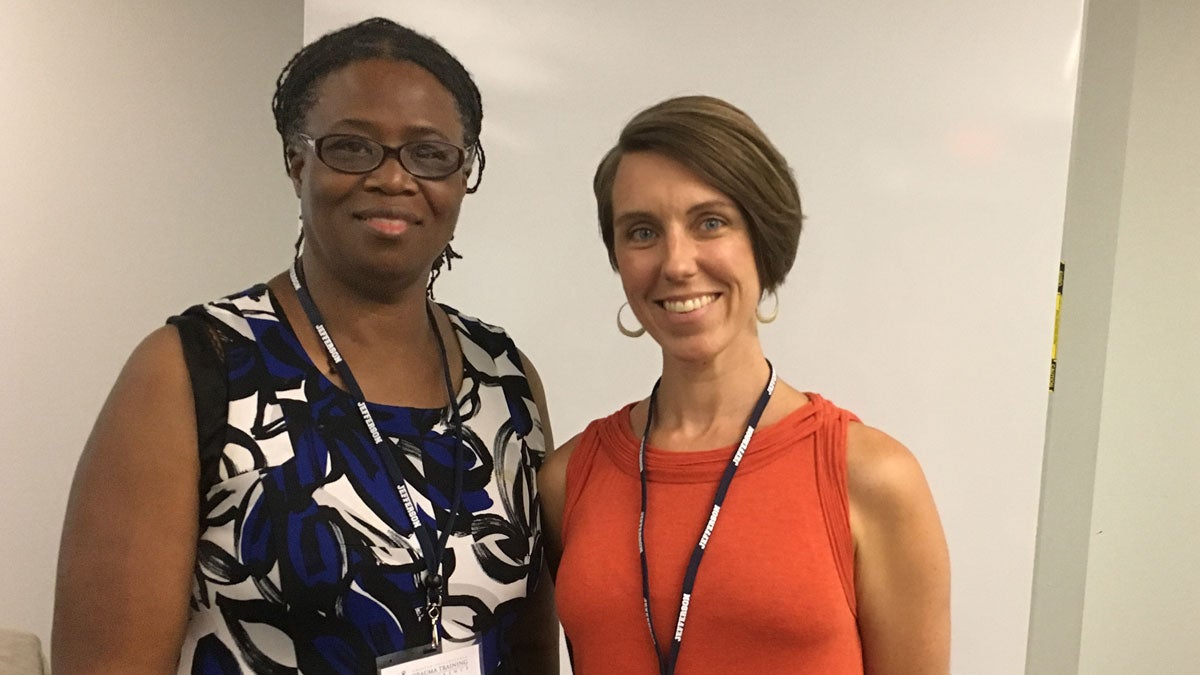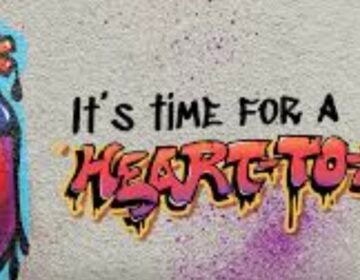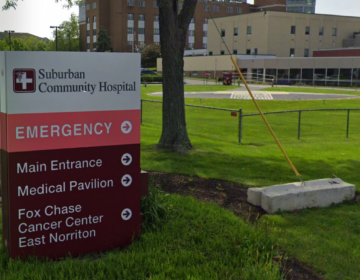Focusing awareness, understanding on helping traumatized kids heal

Cathleen Watkins (left) and SaraLiz Gausz (right) presented a conference on trauma in K-12. (Anne Hoffman for NewsWorks)
The goal is a lofty one — to transform the city of Philadelphia. Organizers of Greater Philadelphia Trauma Training Conference are going about it one professional at a time.
The event, which wraps up Friday at Thomas Jefferson University, is intended to help those in different professional fields become more aware of how to work with children who’ve experienced trauma.
The 450 or professionals who attended Thursday’s session represented the juvenile justice world, health care and education, said Jeanne Felter, program director of the community and trauma counseling program at the university.
“The goal is really to have all of these people working across systems and — collaboratively — to really improve outcomes for children,” she said.
Facilitator Cathleen Watkins, who trains teachers who work with kids, said her goal is to get those educators to ask unruly kids, “What happened to you?” instead of “What’s wrong with you?”
Watkins said in general, when she gives these kinds of talks, teachers react positively.
“Sometimes we are just so delighted because they got it, they started doing the practices, and it’s making a difference in their classrooms,” she said.
Kathy Van Horn, who works with Watkins at the Lakeside Global Institute, agrees and said many teachers realize that rewarding good behavior and punishing “bad” behavior doesn’t work for kids who’ve been through trauma.
Their brains, she said, react differently to stress.
“We see so many teachers who are frustrated because there are these students they’re not reaching,” Van Horn said. “Rewards and consequences aren’t going to work for a student who is functioning from lower in their brain because of what’s impacted them.”
Instead, she said, teachers can use breaks or breathing exercises — or even put rocking chairs in their classroom to help soothe kids.
The ultimate goal, said Felter, is to get different kinds of professionals on the same page, so that the entire city transforms.
Realization of that goal, she said, would mean that everyone who works with kids and families understands that traumatic experiences, especially early in life, affect long-term health and development.
That, in turn, would improve health and educational outcomes for the city’s children.
WHYY is your source for fact-based, in-depth journalism and information. As a nonprofit organization, we rely on financial support from readers like you. Please give today.




